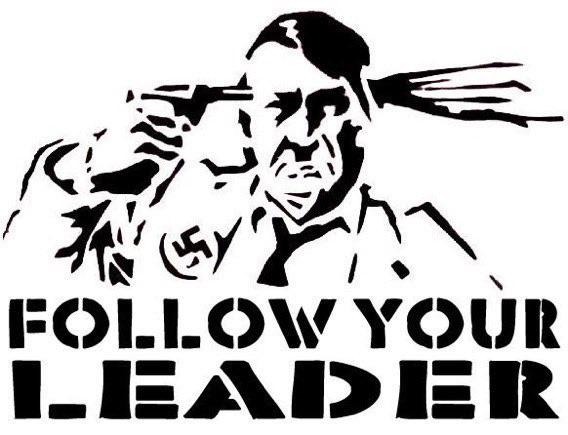When questioning your intentions as arrogant, entitled, immature vs confident, moral right, correctness. Or even questioning if the Duning Kruger effect is at play.
What process do you incorporate to back-up your self-judgement or in identifying your decisions/choices are in-fact “correct” in online discussions and/or personal life with friends/family.
How do you remove “self-doubt”?
Stay intellectually humble. It’s a huge component of wisdom in my observation. Understand you can always make mistakes that can be corrected, and that you have arrived at your opinions through limited information that can always be supplemented, so stay open to both of these possibilities.
You can be confident in your opinions that you arrived upon through spending a lot of effort thinking about them, and you don’t need to have self doubt when challenged on them baselessly. But when someone does point out an error or something you missed, it’s essential you haven’t become closed to accepting it.
Always remember what the basis are for your opinions and how well-founded they really are. For example: how much do you actually know about a thing when you’re relying on something you read in the news? How much do they really know about that thing?
As a check on yourself believing you’ve put a lot of effort into thinking about something, be on the guard for unwarranted confidence. If a professional has put their efforts into something in their field of expertise they’ve spent their whole lives working on, chances are you haven’t thought of something they haven’t in the first five minutes of hearing about their work. That might seem ridiculous, but you see this all the time on Lemmy, where for example commenters seem to think they’ve figured out key errors in scientific papers after reading a single popular science article about an experiment or figured out solutions to incredibly complex problems like fair taxation.
Why would you want to get rid of self doubt? Questioning ones reasons or whether they’re wrong is vital.
I get where you are coming from, that it is a useful thing to have but sometimes self-doubt or insecurities can be debilitating and lead to inaction. It’s should healthy medium like most things in life.
Because your family is toxic and conditioned you from birth to doubt everything you think and feel.
I don’t think you should ever fully remove self doubt. It’s useful so you don’t end up a megalomaniac.
But generally speaking, you do the best you can. I look at the situation, weigh the variables, and make a decision based on the best information I have at the time. If I’m wrong, I’m wrong.
It’s sort of like playing poker. Sometimes you have AA and you lose to someone with 72. Doesn’t necessarily mean you misplayed the hand - sometimes you do your best and still lose. Just lick your bruises and keep moving forward.
Also, I think being able to admit to your mistakes when you are wrong will help a ton.
I don’t. There is no absolutely “right” answers, we just need to accept the bad choices and move on. Like anyone else, you will choose the wrong choice eventually, and that’s is fine, just learn from it.
It’s always good to have self doubt, it leaves you open to changing your mind. Do what you think you should, but those who realise they are fallible will more easily change their view of things when proven why they should.
Imo, you don’t. You must remain humble and open-minded.
I always know I can never be 100% sure of anything. That removes some of the pressure of needing to be right, and ironically some of the uncertainty too. Other than that, well, just gather as much information as possible and go for it… Then don’t look back
OP: I’m struggling with mental unwellness how do I deal with this?
Every reply: You know you should feel even more unsure of yourself, you’re literally wrong about everything and you’re also probably really dumb.
deleted by creator
Find a friend who you can trust to be honest with you to second guess yourself with—preferably someone with a lot of emotional intelligence and self-awareness.
You don’t
I double check. If I think that I’m right about something, I take a moment to consider "have I actually double checked this to make sure it’s true? If not could I potentially humiliate myself by saying something verifiably false, or could I potentially spread misinformation? If I haven’t checked, then I take the time to look into it first before trying to talk about it or make any claims about it. I try not to go based entirely off assumptions or gut feelings. If it turns out I was wrong, then I’ve learned something and avoided a mistake, if it turns out I’m right, then at least now I know for sure that I really am right. It also helps to get into the habit of actually thinking about what I’m going to say, whether it’s actually right or not or just feels right without anything to back it up, and to be open to being wrong. I try to see the possibility of being wrong as a potential learning experience, which makes it less scary, and also makes it easier to not cling to the desire to be right all the time.
Yeah, I also tend to log everything that is supporting my argument. But, it definitely feels like it could be worse “gathering evidence” sometimes. Especially if the topic is around self-improvement rather than something objective.
If the topic isn’t objective then I try to keep in mind that just because something makes me uncomfortable or I disagree with it, that doesn’t automatically make it wrong or me right. I have to contemplate why I disagree and whether it’s something that actually affects me or just something that rubs me the wrong way for no good reason. And if something does bother me, is it productive in any way to make that known to others or should I just keep that to myself? And even if it bothers me, does that mean other people should be bothered by it too? If yes, then why? Is it a morality thing, or just a personal preference thing? Then even if it is a morality thing, I don’t have to try to make it an argument or a fight, instead I can just try to get my own views across and explain my reasoning for the other person to make of what they will. Doesn’t mean I never get mad or into fights, but I try to usually just give the energy I get.
deleted by creator
Edit: tbh, I see how the question is framed as a general question too.
I think overall, therapy is a great solution. I wish it was easier to start the process in the states. Surprisingly I haven’t had any experience truly understanding anti-depressants or being close to those that took them and were open talking about them. I wish I knew more about their effects on how they help with self-assurance.
deleted by creator
I doubt literally everything and don’t trust my own judgment. I’ll thank my ex’s affair for part of that.
I hope that someone else in the room will challenge me.







